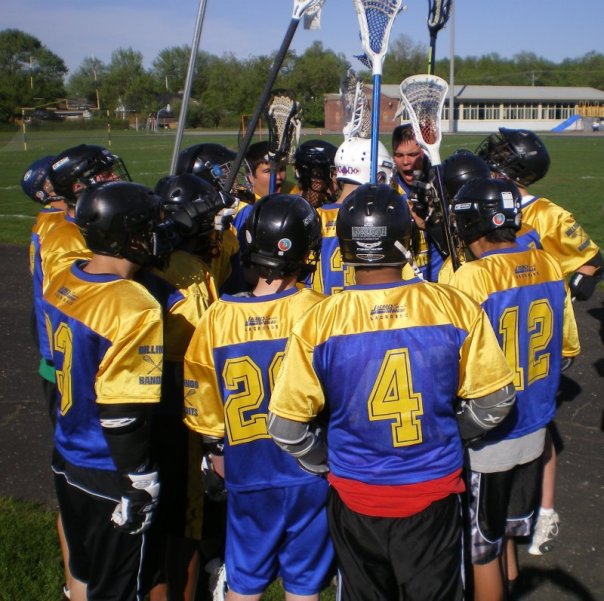I’ve received quite a bit of response from my plea for help in organizing a workshop I’ve been asked to give on integrating technology into secondary classrooms (2 workshops, one in English one in French) – Thank you :)
I’ll be using Teaching is a Verb – Enseigner, C’est Agir to share information with the workshop participants. The workshops will mainly be centred around digital storytelling in the content areas – I figured this was the easiest way to address the task I was given, “Can you put together a workshop on integrating technology in the High School Language Arts, History, and Science classes? Oh, and can you do a second one for French teachers? Thanks.”
At this point I have a whole slew of online resources to offer the teachers and to help organize my thoughts on the matter. I found a great Firefox add-on called Send Tab URLs that helped me to make a list of the resources I’ve collected so far.
There are a few examples of teaching and student practice among these links so far. I’d love to find more! The more I can show my teachers the better. The teachers who will be participating are already interested in the topic so theory will be kept to a bare minimum, though I’ll be able to direct anyone who is interested to the blog I am creating for any theory they want (I love theory :)
What they want is to see what it looks like in a classroom. I can show them final products, I can show them where to go to find different applications, but what I need to show them is what it looks like. If anyone has any resources for that, I’ll love you forever :)
From Send Tab URLs (38 links)
– The View From Here: Teaching the New Writing – Book
http://kentmanning.blogspot.com/2009/07/teaching-new-writing-book.html
– Confessions of an Aca/Fan: Archives: How New Media is Transforming Storytelling: A New Video Series
http://henryjenkins.org/2010/08/how_new_media_is_transforming.html
– How to create …. – Digital Storytelling – Resources for assignments at University of Wollongong Library
http://uow.libguides.com/content.php?pid=82573&sid=612645
– Secondary Cycle Two
http://www.mels.gouv.qc.ca/sections/programmeFormation/secondaire2/index_en.asp?page=math
– Technology Tools
http://livebinders.com/play/play_or_edit?id=22880
– ecole
http://www.robertbibeau.ca/ecole.html
– Tutoriel pour créer un montage vidéo avec Windows Movie Maker – TIC@le: TIC, langues et formation des enseignant(e)s
http://ticale.canalblog.com/archives/2010/03/27/17379912.html
– Inuktic
http://inuktic.qc.ca/
– Carrefour éducation
http://carrefour-education.qc.ca/accueil_secondaire
– Voicethread – FrankTechCamp2010
http://sites.google.com/a/franklinvillecsd.org/franktechcamp2010/voicethread
– Web 2.0 @ School – DigitalStorytelling
http://mcneice.wikispaces.com/DigitalStorytelling
– CogDogRoo – 50 Ways
http://cogdogroo.wikispaces.com/50+Ways
– USTREAM, You’re On. Free LIVE VIDEO Streaming, Online Broadcasts. Create webcasts, video chat, stream videos on the Internet. Live streaming videos, TV shows
http://www.ustream.tv/
– Your Brain on Computers – Studying the Brain Off the Grid, Professors Find Clarity – NYTimes.com
http://www.nytimes.com/2010/08/16/technology/16brain.html?_r=2&pagewanted=1&ref=general&src=me
– Professional blog | davidwees.com
http://davidwees.com/content/using-google-forms-choose-your-own-adventure-style-story
– Digital_storytelling_Kirsty_McGeoch_IATEFL_2009.pdf (application/pdf Object)
http://iatefl.britishcouncil.org/2009/sites/iatefl/files/session/documents/Digital_storytelling_Kirsty_McGeoch_IATEFL_2009.pdf
– Center for Digital Storytelling
http://www.storycenter.org/index1.html
– Technology integration
http://www.learnnc.org/lp/pages/6673
– What motivates us to do good?
https://leadingfromtheheart.org/2010/01/18/what-motivates-us-to-do-good/
– edbuzz.org » Teacher Resources
http://edbuzz.org/teacher-resources/
– Aberth Digital Storytelling — digital storytelling, participatory media and easing access to mass media for public expression
http://www.aberth.com/blog/
– Seven things to Avoid when making a digital story
http://www.aberth.com/blog/seven-things-to-avoid-when-making-a-digital-story.html
– YouTube – spmath’s Channel
http://www.youtube.com/user/spmath#g/a
– What does exemplary technology infused Math instruction look like? (Middle & High School) | Welcome to NCS-Tech!
http://www.ncs-tech.org/?p=5850&cpage=1#comment-27740
– Alternative Assessment with VoiceThread
http://alalearning.org/2010/08/26/alternative-assessment-with-voicethread/?utm_source=feedburner&utm_medium=feed&utm_campaign=Feed:%20ALALearning%20(ALA%20Learning%20Round%20Table)
– Google Forms for Assessment, Evaluation, and Reflection
http://alalearning.org/2010/05/17/google-forms-for-assessment-evaluation-and-reflection/
– Technology
http://alalearning.org/category/technology/
– VoiceThread as a Digital Portfolio « TeachingSagittarian
http://teachingsagittarian.com/2009/03/voicethread-as-a-digital-portfolio/
– Lightning Bug – Storyboarding
http://www.lightningbug.com.au/storyboarding/storyboarding.htm
– The Digital Narrative – Find your story
http://www.thedigitalnarrative.com/communityhp.htm
– N°482 – Le Web 2.0 et l’école – Le Cercle de Recherche et d’Action Pédagogiques et les Cahiers pédagogiques
http://www.cahiers-pedagogiques.com/spip.php?page=numero&id_article=6882
– Free Technology for Teachers: 140 New Things Being Tried In Classrooms This Fall
http://www.freetech4teachers.com/2010/08/140-new-things-being-tried-in.html
– Free Technology for Teachers: Free Downloads
http://www.freetech4teachers.com/p/free-downloads.html
– Edmodo | Secure Social Learning Network for Teachers and Students
http://www.edmodo.com/
– Storytelling — It’s News!
http://www.storynet-advocacy.org/news/
– digitalstorytelling – home
http://digitalstorytelling.iste.wikispaces.net/
– digitalstoryca’s Bookmarks on Delicious
http://www.delicious.com/digitalstoryca
– monarchlibrary – digitalstorytelling
http://monarchlibrary.wikispaces.com/digitalstorytelling

